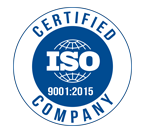Biologically Active Small Molecules, UN1544
-
Cytochalasin B
Cayman ChemicalA cell-permeable mycotoxin which binds to the barbed end of actin, reversibly inhibiting the elongation and shortening of actin filaments; blocks diverse cellular functions, including cell division, migration, phagocytosis, exocytosis, chemotaxis, and glucose transport.
-
Methotrexate
Cayman ChemicalAn analog of folic acid and aminopterin that is used in the treatment of cancer, autoimmune diseases, ectopic pregnancy, and for the induction of medical abortions; induces adenosine release, inhibits the metabolism of folic acid, and blocks key enzymes in the synthesis of purines and pyrimidines…
-
Rauwolscine (hydrochloride)
Cayman ChemicalA natural alkaloid that acts as a selective and reversible α2-adrenergic receptor antagonist (Ki = 12 nM); also acts as a receptor antagonist at the serotonin 5-HT2B receptor (Ki = 14.3 nM).
-
(+)-Pilocarpine (hydrochloride)
Cayman ChemicalA muscarinic M1 and M2 mACh receptor agonist (pKB = 5 and 3.7, respectively) that is typically used as an animal model for temporal lobe epilepsy.
-
Camptothecin
Cayman ChemicalA cytotoxic, quinoline alkaloid that inhibits the DNA enzyme topoisomerase I (Top I) by binding the Top1-DNA cleavage complex and inducing DNA-strand breaks; has strong anti-tumor activity and induces DNA damage at concentrations as low as 51 nM in whole cells and 12 nM in isolated nuclei in in…
-
Cytochalasin D
Cayman ChemicalA cell-permeable inhibitor that binds actin filaments, but not actin monomers, to inhibit polymerization at concentrations as low as 0.2 µM.
-
(+)-Bicuculline
LKT LabsBicuculline is a neuromodulatory GABA-A receptor antagonist used to study regional variation of GABA receptors and the role of GABA-A receptors in motor disorders, pain, seizure, nociception, anxiety, and memory. Through its inhibition of GABA-A receptors, bicuculline potentiates activation at NMDA…
-
Colchicine
Cayman ChemicalInhibits microtubule polymerization (IC50 =3.2 μM) by binding to tubulin, which disrupts spindle formation during mitosis; blocks the growth of MCF-7 human breast carcinoma cells (IC50 = 13 nM); inhibits neutrophil motility and activity (5 μmol/kg in a mouse model of…
-
Aristolochic Acid A
LKT LabsAristolochic acid A is a carcinogenic compound found in Aristolochia and Radix that has commonly been used in traditional Chinese medicine. This compound inhibits phospholipase A2 (PLA2) and decreases GABA-induced release of arachidonic acid and phosphatidylcholine as well as exocytosis in vitro.
-
Atropine
Cayman ChemicalNon-selective, competitive antagonist of the muscarinic acetylcholine receptor types M1, M2, M3, M4, and M5 (pKBs range from 8.9-9.8); increases firing of the sinoatrial node and conduction through the atrioventricular node of the heart, opposes the actions of the vagus nerve, blocks acetylcholine…
-
Monocrotaline
Cayman ChemicalA natural 11-membered macrocyclic pyrrolizidine alkaloid used in an animal model of pulmonary hypertension.
-
Cytochalasin A
Cayman ChemicalInhibits actin polymerization; uniquely inhibits HIV-1 protease (IC50 = 3 μM); rapidly and reversibly inhibits glucose transport by competitively binding glucose transporters (Ki = 4.0 μM); induces the phosphorylation of the tyrosine phosphatase PTP3 of Dictyostelium, activating STATc.
-
Muscimol
Cayman ChemicalA full GABAA agonist and partial GABAC agonist; binds GABAA on both high- and low-affinity sites (Kd = 10 and 270 nM, respectively), stimulating chloride efflux with an EC50 of 200 nM; activates GABAC receptors with an EC50 of 1.3 μM; impairs memory formation and retrieval; attenuates airway constriction.
-
Cytochalasin C
Cayman ChemicalA cell-permeable inhibitor of actin polymerization that has been shown to be 10 times less toxic in mice than cytochalasin D.
-
(-)-Huperzine A
Cayman ChemicalA natural sesquiterpene alkaloid that inhibits AChE in rat cortex in vitro (IC50 = 82 nM) and displays oral AChE inhibitory activity in animals.













